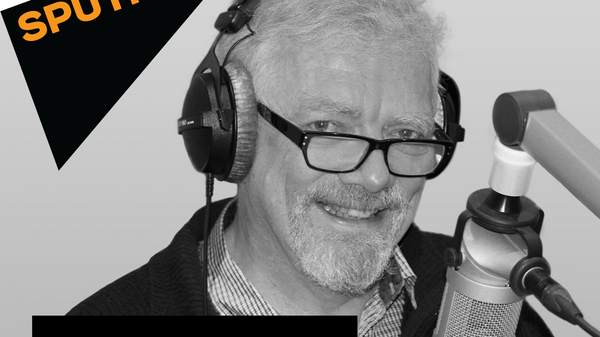Rob Taub, TV commentator, bestselling author and writer for Huffington Post, as well as Professor Daniel Kovalik, lecturer of International Human Rights at the University of Pittsburgh School of Law, engage in a frank conversation about the American media.
Professor Kovalik starts off the program by saying that theoretically, any news network could lose its license as result of an act by the FCC, the Federal Communication Commission. "But that would be an extreme move; it is I think inconceivable that it would ever happen. We have a very strong First Amendment, and free speech protections in the United States." Rob Taub agrees that it is unlikely that any licenses are going to be revoked, however he says: "Trump's mad genius is that he knows how to undermine an entire industry, as he has proven with the NFL. His intention is not to actually do anything himself to the media but to galvanize his base, which is a large part of our country, and they hate what they see in the mainstream media. And that can be damaging because the President wields power, he divides and polarizes our country…"
A discussion ensues about Trump's ability to mobilize the ‘forgotten Americans'. "That's what demagogues do," says Daniel Kovalik. "He's a demagogue, and he is an effective one and should not be underestimated….I'd think though that there is truth in the fact that the mainstream media has, I think, abdicated its role as the watchman of the government. Especially when it comes to foreign policy. The media does usually promote the State Department's line on things, I think that this is not good, they are not doing what I think they should be doing, and this is undermining democratic values in this country. The truth is, there is a deficit of truth in the mainstream press."
Rob Taub points out that the media as a whole is evolving because it is now impossible to make a living as a journalist. "Every day there is some new site that you can find on the internet that pops up on Twitter and there is no way to test the validity of a lot of these, I don't even know what to call them….There is something else that Murdoch addressed over ten years ago, when he asked: ‘where are we going to go when the media doesn't have the money anymore to have foreign news bureaus and to pay reporters well, because you can't pay for a level of journalism where somebody works on a story for 6 or 9 months, and probes and investigates; there's no budget for it."
Host John Harrison asks that if the freedom of the press is under threat then are we also talking about the downfall of democracy, as freedom of the press is so vital for the existence of democracy. Daniel Kovalik says that there are a lot of warning signs. "Jimmy Carter himself said a couple, of years ago that we do not have a functioning democracy. We have more of an oligarchy. It is so infected with the power of money…I think we can question how democratic our country is and the problem is getting worse."
The polarization of audiences is discussed. "Audiences are already polarized right now," Rob Taub says. A debate ensures about Bernie Sanders and the way that he has become the most popular politician right now according to the latest polls. To Rob Taub, this is a reflection of the decay of standards, that somebody who he sees as being an extremist can become some popular. To Professor Kovalik, Bernie Sander's rise is a reflection of hope, that there can actually be change, "in a two-party country and when the parties aren't frankly very different from each other."
In the second part of the program, Rob Taub provides more details about how the press has changed. "Since we have moved to a 24-hour news cycle, we are not just giving the news; we are really hoisting opinions on people." Professor Kovalik sees a bigger problem: "The existing problem we have, is with the established press, which honestly has lied to us into every war we've had since WWII. The idea that's it's a shame that people won't be reading the New York Times anymore, I don't think it's a shame. They pushed the weapons of mass destruction lie harder than anyone. One million dead Iraqis later, we see this was a disaster, and you can go on and on with that. The lies that led us to the wars in Libya look at Libya now; there's slaves being sold on open markets there, after that invasion, that was based on lies. Look, I agree that there is problem with people not knowing where to go to find facts and truth, but I don't think the established press is the place to go."
A discussion follows about the undeniable existence now of a mass of information on the internet and how to sort one source from another. Professor Kovalik points out that some of the most interesting sources of information are being targeted by the government, "algorithms are being used to turn people away from more alternative left-wing publications like Counterpunch, The Nation, that sort of thing."
Rob Taub looks at the future optimistically. "We are at a bump in the road right now, that doesn't mean that the car is going to crash." Professor Kovalik, however, feels that the situation is currently extremely serious because of the possibility of control of the media. "We are fighting wars that very few people know about. It is a very profound problem that we have in terms of accessing that information. I think people are already hoodwinked when it comes to the issue of War and Peace. There is no debate…."
"War is peace.
Freedom is slavery.
Ignorance is strength."
— George Orwell, 1984
We'd love to get your feedback at radio@sputniknews.com

